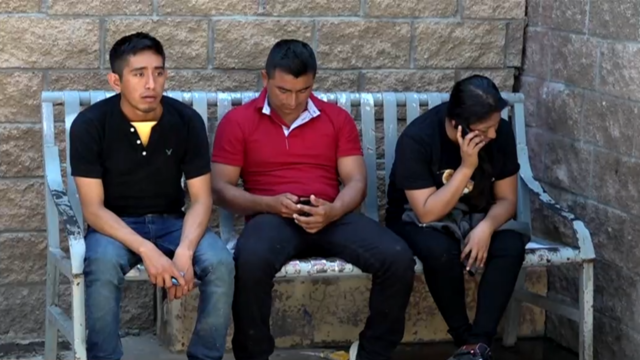
"Deportations are 24/7": Migrants are quickly returned to Mexico
Under President Biden's June proclamation, migrants who cross the southern border between legal entry points are generally disqualified from asylum.
Watch CBS News

Camilo Montoya-Galvez is the Immigration Correspondent at CBS News, where his reporting is featured across multiple programs and platforms, including national broadcast shows, CBS News 24/7, CBSNews.com and the organization's social media accounts.
Montoya-Galvez has received numerous awards for his groundbreaking and in-depth reporting on immigration, including a national Emmy Award, the Alfred I. duPont-Columbia University Award and several New York Emmy Awards.
Over several years, he has built one of the leading and most trusted national sources of immigration news, filing breaking news pieces, as well as exclusive reports and in-depth feature stories on the impact of major policy changes.
Montoya-Galvez was the first reporter to obtain and publish the names of the Venezuelan deportees sent by the U.S. to a notorious mega-prison in El Salvador, with little to no due process. Using that list, he co-produced a "60 Minutes" report that found most of the deported men did not have apparent criminal records, despite the administration's claims that they were all dangerous criminals and gang members. Montoya-Galvez was also the first journalist to interview Jennifer Vasquez Sura, the wife of Kilmar Abrego Garcia, who was wrongfully deported to El Salvador and imprisoned at the CECOT prison.
In 2025 alone, Montoya Galvez broke dozens of other exclusive stories. He disclosed the internal Trump administration plan to revoke the legal status of hundreds of thousands of migrants from Cuba, Haiti, Nicaragua and Venezuela; landed the first national network sit-down interviews with the current heads of ICE and Border Patrol; and obtained government data showing that illegal crossings along the U.S.-Mexico border in fiscal year 2025 plummeted to the lowest level since 1970 amid Trump's crackdown.
Montoya Galvez's North Star is to cover immigration with nuance and fairness, in a nonpartisan, comprehensive and compelling way that respects the dignity of those at the center of this story
Before joining CBS News, Montoya-Galvez spent over two years as an investigative unit producer and assignment desk editor at Telemundo's television station in New York City. His work at Telemundo earned three New York Emmy Awards. Earlier, he was the founding editor of After the Final Whistle, an online bilingual publication featuring stories that highlight soccer's role in contemporary society.
Montoya-Galvez was born in Cali, Colombia's third-largest city, and raised in New Jersey. He earned a bachelor's degree in Media and Journalism Studies and Spanish from Rutgers University.

Under President Biden's June proclamation, migrants who cross the southern border between legal entry points are generally disqualified from asylum.
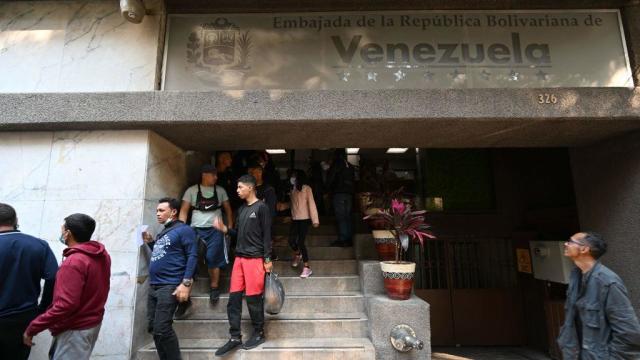
The Biden administration is reopening an updated version of a migrant sponsorship program it paused abruptly earlier this summer due to concerns about fraud.
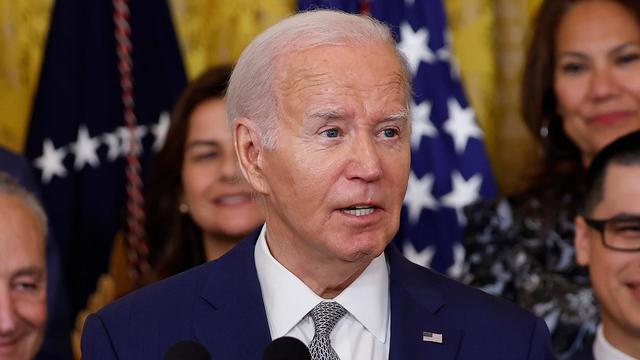
A federal judge temporarily blocked the Biden administration from granting legal status to undocumented immigrants married to U.S. citizens under a new program.

Democrats have coalesced around tougher messaging around border security amid record levels of migrant crossings.
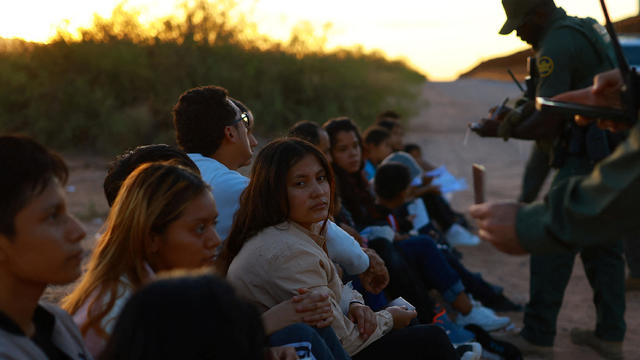
A months-long downward trend in unauthorized border crossings has accelerated since President Biden's executive order took effect.
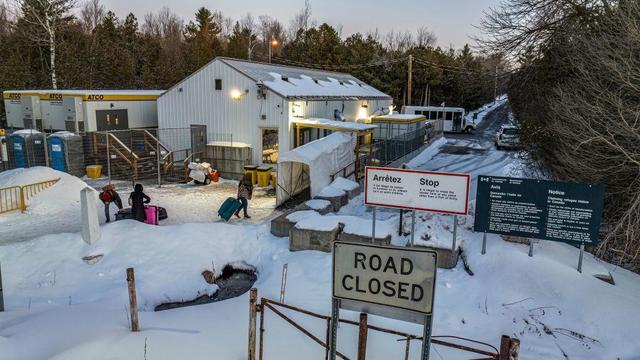
The Biden administration is planning to speed up the processing of asylum-seekers at the U.S.-Canada border in response to an unprecedented increase in migrant crossings there.

Texas Gov. Greg Abbott claimed that his state was shouldering the economic burden of providing medical services to migrants entering the country illegally.
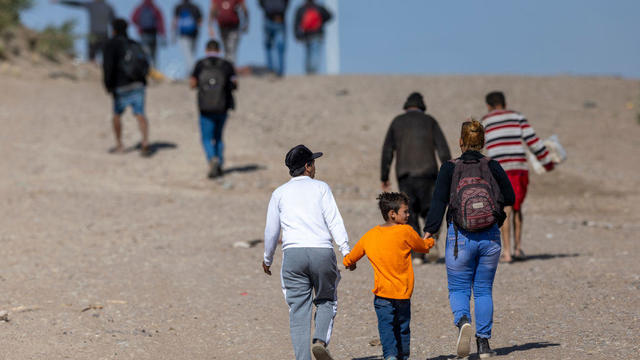
The pause was triggered by a significant number of would-be sponsors applying to sponsor multiple migrants, sources said.
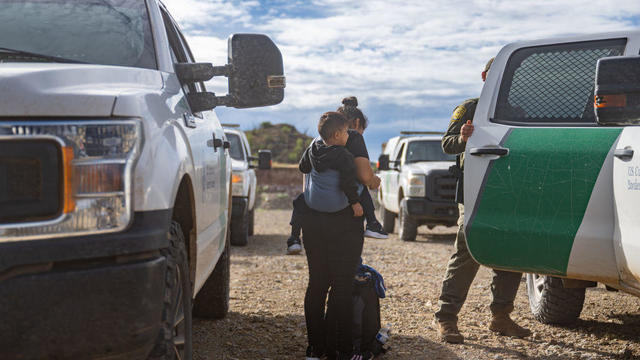
U.S. Border Patrol agents made 56,000 migrant apprehensions along the U.S.-Mexico border in July, the lowest number since September 2020.
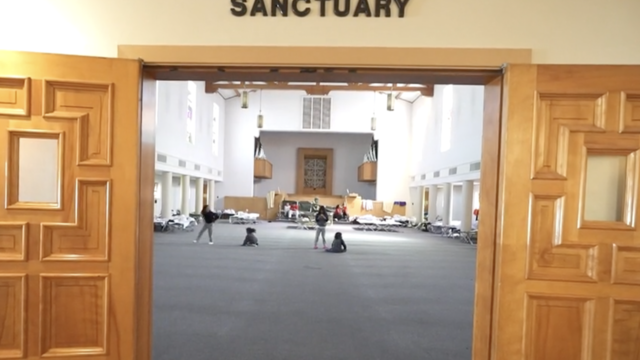
The state of Texas is accusing a Catholic charity of being a "stash house" for migrants. But the shelter says it is simply helping desperate people in need.
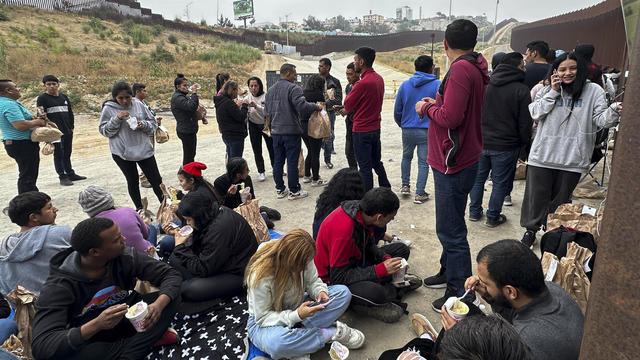
In June, President Biden enacted a partial ban on asylum claims at the U.S.-Mexico border using his executive authority.
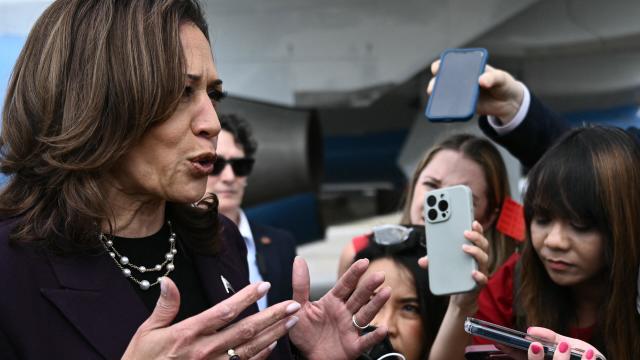
Vice President Kamala Harris is looking at "probably one of the most important processes and decisions that she will make," her campaign manager told CBS News in an exclusive interview in Arizona.
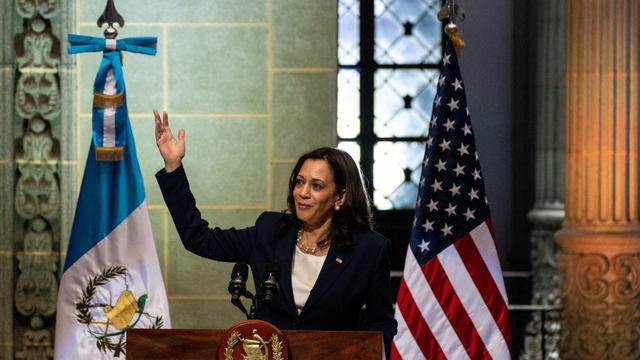
In her immigration role, Vice President Kamala Harris has mainly focused on convincing companies to invest in Central America and promoting democracy and development.

Justice Department lawsuit accuses employees of Southwest Key, a Texas-based organization, of sexually abusing and harassing unaccompanied migrant children in its shelters.
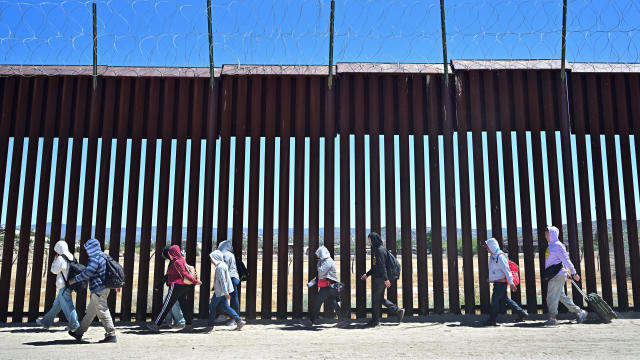
July is on track to see the fifth consecutive monthly drop in migrant apprehensions along the U.S.-Mexico border.